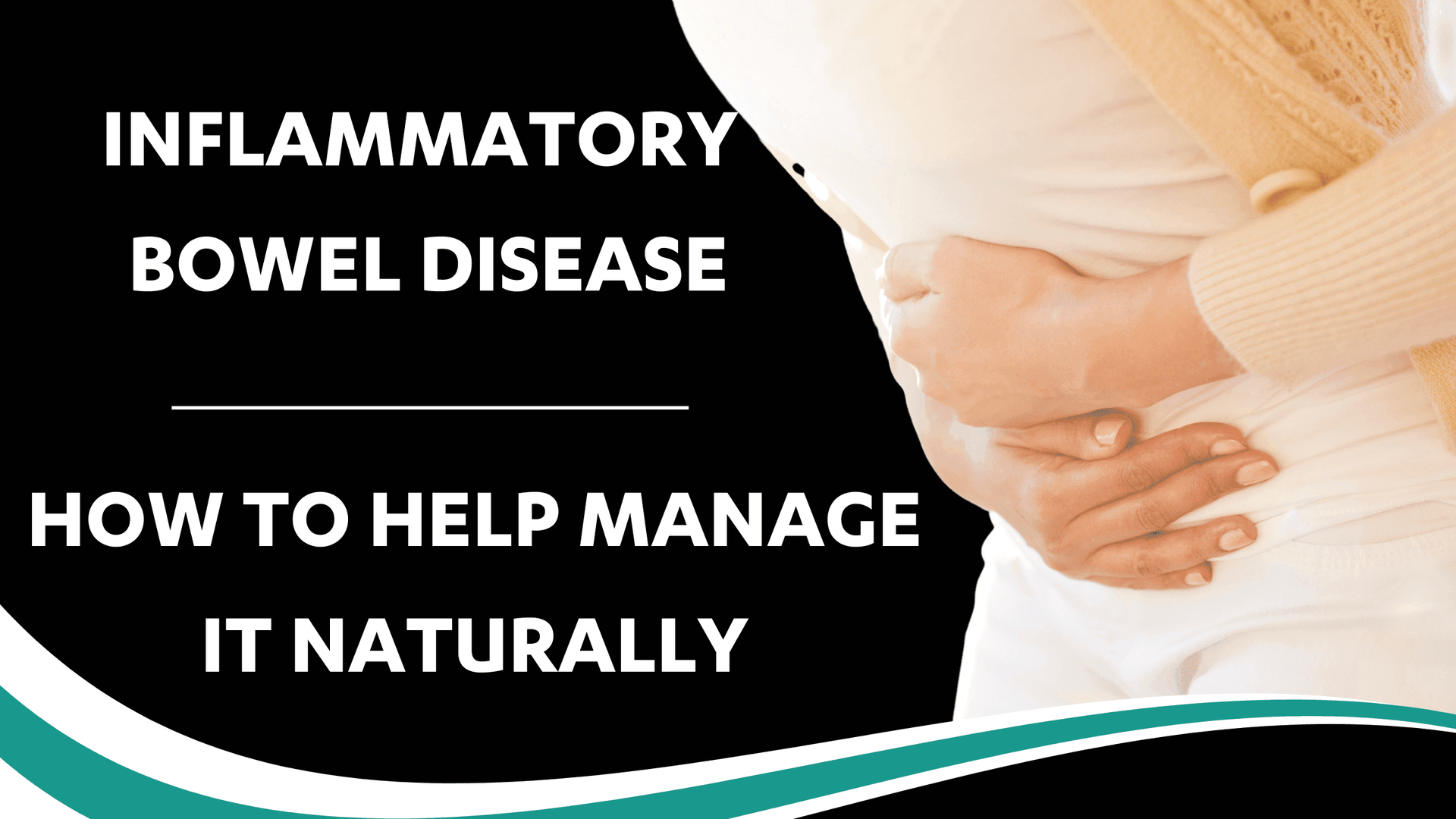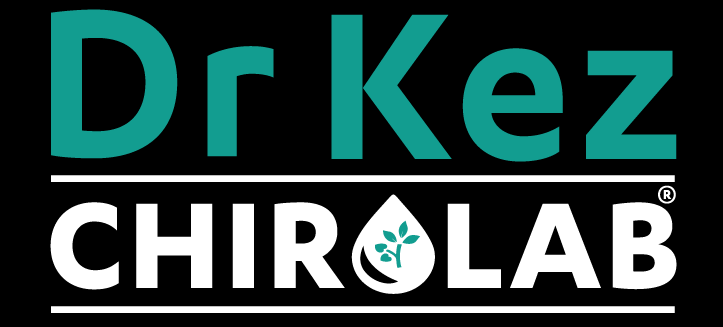
What is Inflammatory Bowel Disease and how can we help manage it naturally?
Well, well, well, buckle up folks because we're about to dive into the nitty-gritty of inflammatory bowel disease (IBD) and how diet and lifestyle can make a world of difference. For those of you who are unfamiliar with IBD, it's a chronic autoimmune disease that affects the digestive system, including the small and large intestines. And let me tell you, it's not a walk in the park.


An autoimmune disease is a condition where the immune system, which is designed to protect the body from harmful invaders like viruses and bacteria, mistakenly attacks healthy cells and tissues in the body. This can lead to a range of symptoms and health problems, depending on which part of the body is affected.
In the case of IBD, which stands for inflammatory bowel disease, the immune system attacks the lining of the digestive tract, causing inflammation and a range of uncomfortable symptoms like stomach pain, diarrhoea, and rectal bleeding, more on this in a moment.
It's still unclear what exactly triggers autoimmune diseases, but there are a number of factors that are believed to play a role, including genetics, environmental factors, and lifestyle factors like diet and stress.
There are more than 80 different types of autoimmune diseases identified and they affect approximately 5% of the Australian population. So if you or someone you know is dealing with an autoimmune disease like IBD, know that you are not alone and there are resources available to help you manage your symptoms and live your best life.


First of all, let's talk about the stomach cramps. These aren't your run-of-the-mill cramps either. We're talking about intense, gut-wrenching pain that can leave you doubled over in agony. This pain can be caused by partial gut blockages or more commonly be the result of severe intestinal inflammation that is classic of this condition.
Now let's not forget about the diarrhoea. Oh yes, I said it. Diarrhoea. We're not talking about the occasional loose stool here. We're talking about frequent, urgent trips to the bathroom that can last for days on end. As a result of all of the inflammation in the lining of the gut wall, the body finds it difficult to absorb fluid from the digestive tract which makes the stools loose and watery. The more liquid the stools, the faster they move through the digestive system and the more frequently you need to rush to the loo. It’s not exactly the most glamorous of conditions, if you catch my drift.
And as if the stomach cramps and diarrhoea weren't enough, there's also rectal bleeding. That's right, you heard me. Blood in your poo. The blood usually comes from ulcers that form in the digestive tract as a result of this condition, which is then evident in the stools after they pass. It's not a pretty sight, and it can be downright terrifying for those who experience it.

Weight loss is another common symptom of IBD. When your digestive system is in overdrive, it can be difficult to keep up with the calories you need to maintain a healthy weight. The food material passes so quickly through the digestive system that it is very hard for the body to pick up the nutrients it needs to remain healthy. Plus, the constant diarrhoea and vomiting can leave you feeling weak and drained.
And let's not forget about the fatigue. Dealing with IBD can be exhausting, both physically and mentally. The constant pain and discomfort can leave you feeling drained and depleted, let along the fact that you aren’t getting the nutrition and energy from your food, as it is passing through the body too fast. As a result, it can be difficult to muster the energy to do even the simplest of tasks.

Both ulcerative colitis and Crohn's disease are examples of inflammatory bowel disease.
Ulcerative Colitis
First off, ulcerative colitis is like a clingy ex who just won't leave you alone. It only affects the colon and rectum, and causes inflammation and ulcers in the lining of the colon. This can lead to symptoms like diarrhoea, rectal bleeding, and abdominal pain. Basically, it's a pain in the butt - quite literally. Being an autoimmune disease, the part of the digestive system that the body has attacked in the case of ulcerative colitis, is only the innermost lining of the colon.
Crohn’s Disease
On the other hand, Crohn's disease is like a fickle lover who can't make up their mind. It can affect any part of the digestive tract, from the mouth all the way down to the anus. This can lead to a wide range of symptoms, including diarrhoea, abdominal pain, cramping, and even fistulas - which are abnormal tunnels that form between the intestines and other organs. In Crohn's disease, the body attacks multiple layers of the intestinal wall, not just the innermost lining, and it can be patchy rather than continuous.


Although these two conditions are slightly different in how and where they affect the digestive system, they both have a similar negative impact on the lives of those that have it. But fear not, because there are some natural home help tips that can help to ease the symptoms and allow you to get back to some form of normality.
First things first, let's talk about diet. When it comes to IBD, what you put into your body matters a lot, and certain foods can trigger bad flare-ups. Foods that are high in fat, dairy, and processed sugar can cause an increase in the inflammation within the gut. On the other hand, foods that are high in fibre, like fruits, vegetables, and whole grains, can help reduce inflammation and promote a healthy digestive system.


One diet that has gained popularity among those with IBD is the low-FODMAP diet. FODMAPs are short-chain carbohydrates that are poorly absorbed in the small intestine and can ferment in the large intestine, leading to symptoms like bloating, gas, and diarrhoea. By avoiding high-FODMAP foods, like wheat, dairy, and certain fruits and vegetables, many people with IBD have seen a reduction in their symptoms.
But it's not just about what you eat, it's also about how you eat. Eating slowly and chewing your food thoroughly can help reduce stress on the digestive system and promote better digestion. And let's be real, who doesn't need a good excuse to slow down and savour their food?

Both ulcerative colitis and Crohn's disease are complex conditions that significantly impact the lives of those affected. Managing these conditions requires a multifaceted approach, with a focus on alleviating symptoms and reducing inflammation. However, beyond traditional treatment modalities, there's a growing recognition of the critical role of gut health in inflammatory bowel disease (IBD) management.
The gut microbiome, comprising of trillions of microorganisms, plays a pivotal role in maintaining the delicate balance between immune response and inflammation within the digestive system. For individuals with IBD, restoring and nurturing this balance is critically important in regaining their quality of life back. That's where interventions like PlantEm Essentials Anti-inflammatory and Prebiotics come into their own.
PlantEm Essentials Anti-inflammatory is specially formulated with natural ingredients known for their anti-inflammatory properties. With turmeric as the hero of this all natural, whole food blend, it is accompanied by black pepper and coconut to ensure optimal bioavailability of the turmeric deep into the body for the maximum therapeutic effect. The turmeric and other anti-inflammatory ingredients have been shown to help alleviate inflammation not only in the gut but throughout the body, potentially offering relief for those experiencing symptoms of IBD and generalised pain and stiffness as a result of systemic inflammation.
Moreover, PlantEm Essentials Prebiotics, which again is a blend of whole food ingredients, specifically chosen as the best option to feed and nourishing the beneficial bacteria in the gut microbiome. By providing the necessary nutrients for these microbes to thrive, prebiotics support the growth and diversity of beneficial gut bacteria. This is particularly crucial for individuals with IBD, as the frequent bouts of diarrhoea strip the gut of its protective microbiome. It is strongly advisable to focus on nurturing this gut flora by providing the right fuels to keep them robust and strong.
Incorporating PlantEm Essentials Anti-inflammatory ad Prebiotics, along with other dietary and lifestyle interventions, into a comprehensive treatment plan for IBD may offer promising benefits.
By prioritising gut health and exploring innovative approaches like PlantEm Essentials Anti-inflammatory and Prebiotics, individuals living with ulcerative colitis and Crohn's disease can take proactive steps towards managing their condition and improving their overall well-being.

Now, let's talk lifestyle. Stress can be a major trigger for IBD flare-ups, so finding ways to manage stress is crucial. One natural stress-reducing technique is using an acupressure mat for 20 minutes each day to release endorphins, which help to counteract the stress hormones within your body.


The acupressure mat can be also be used to enhance the energy flow through the digestive system by wrapping the mat around your arm to stimulate the large intestine and small intestine meridians that run down the outside and the inside of your arm respectively. It is part of the Traditional Chinese Medicine beliefs that stagnant energy in these meridians can lead to ill-health and disease. Stimulating these points with the acupressure mat can restore stagnant energy and improve the flow of energy once again to these organs.

You can increase the beneficial effects during this 20 minute acupressure mat experience by also listening to our healing relaxation meditation at the same time. Focusing your healing energy on the digestive system during this meditation will amplify the beneficial effects. Meditation has been shown to reduce anxiety and depression, improve sleep, and even reduce inflammation in the body. There are many different types of meditation, so it's important to find the one that works best for you.


In addition to acupressure and meditation, exercise can also be an effective way to reduce stress and promote a healthy lifestyle. Exercise releases endorphins, which can help improve mood and reduce pain. But it's important to start slow and listen to your body. High-intensity exercise may not be the best option for everyone with IBD, so finding low-impact activities, like yoga or swimming, may be a better fit.
So there you have it, folks. The not-so-pretty details of what it's like to live with IBD. It is a challenging condition that requires a comprehensive approach to management. But don't let that scare you off. With the right management techniques, like diet and lifestyle changes, plus stress-reducing techniques like acupressure and meditation, you can regain control of your digestive system and live your best life. So if you're dealing with IBD, don't be afraid to try new things and find what works best for you, as what works for one person, may not necessarily work for another. Working with your healthcare provider to develop a personalised plan for managing your symptoms as well as trying these at home tips might be just what the doctor order to get on top of this condition and show it who’s boss!










